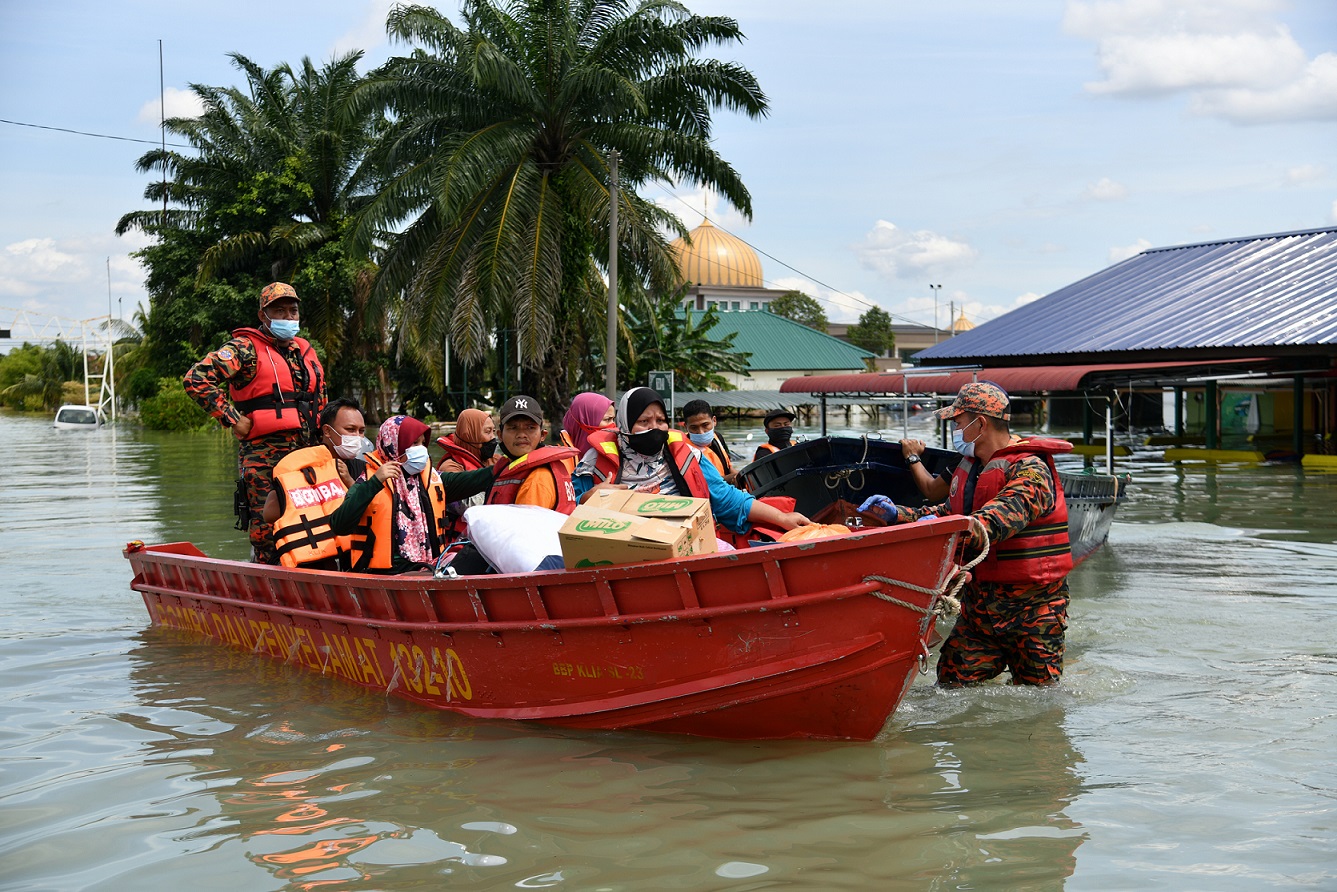How To Plan And Prepare For A Flood
How To Plan And Prepare For A Flood

15 December 2022, Kuala Lumpur, Malaysia – In conjunction with the monsoon season, which is expected to cause recurring periods of heavy rain until March next year[1], International SOS, the world’s leading security and health services company, has put together some advice and key steps Malaysians can consider to help prepare for and minimise the impact if floods do occur. The advice is based on International SOS’ extensive experience in dealing with natural disasters, including floods, both internationally and in Malaysia.
Dr Chan Yanjun, Medical Director, Singapore & Malaysia, International SOS, shared, “With forecasts indicating that our rainy season is far from over, Malaysians need to be prepared in case of floods. We have a strong track record and experience dealing with natural disasters in Malaysia and around the world. While there are many different actions people should undertake in a flood situation, the most important rule is do not try to walk, swim or drive through flood water. Cars and people can be swept away, so always remember safety first and to stay alert so you don’t get hurt.”
She continued, “By producing this content, first and foremost, we hope Malaysians will find it helpful and useful if they ever find themselves in this situation. We also want to raise awareness on the importance of being prepared, remaining calm in the midst of the situation and keeping up-to-date with information and forecasts by authorities, so we can all keep ourselves and our loved ones safe.”
Based on their experience dealing with natural disasters, such as floods, International SOS’ key advice for what Malaysians should do prior to and during a flood include:
- Recognise Risks – Identify flood or landslide-prone areas near you. Watch weather alerts and warnings.
- Stock Up – Store a three-day supply of water (ration one gallon or roughly 4 litres per person per day) and dry food.
- Be Prepared – Know your community’s evacuation routes and emergency shelter locations.
- Get Help – If you are stranded, injured or ill, contact your local emergency services department and wait for help.
If you are stuck in a house/building:
- Keep up-to-date with any information, advice and weather forecasts.
- Check the drainage system behind or outside your house to see the water levels. The higher the water level climbs, the more likely you will have to evacuate.
- Turn off gas, power and water when power is down, water has entered your home or before you evacuate. Make sure to unplug appliances to avoid electrical shock when power returns.
- Move to higher ground. Only move to the roof if necessary.
- If advised to evacuate, do so immediately (lock gates and doors before leaving if possible).
If you are stuck in a car:
- Stay off bridges as they can be washed away in severe floods.
- Stay inside your car if you are trapped by rapidly moving water.
- Move to the roof of your car if water starts to fill your car.
Dr Chan added, “After a natural disaster, such as floods, the risk of getting an infectious disease is greater. Malaysians need to be aware of the other potential sources of infection from floods. Flood water, which may contain sewage and be contaminated with chemicals and other pollutants, should be avoided wherever possible and should not be used to clean, bathe, play, drink, or cook with. Children must not play with flood-water contaminated toys that have not been disinfected either. Malaysians also need to be aware of snakes that may be swimming in the water to get to higher ground and those that may be hiding under debris or other objects. Rain and flooding may lead to an increase in numbers of mosquitoes, which can carry diseases.”
“In times of flooding, practicing basic hygiene is very important. Wash your hands before preparing food or eating, after toilet use, after participating in clean-up activities, and after handling articles contaminated with floodwater or sewage. Use an alcohol-based hand sanitiser if you have a limited supply of clean water. Floods, particularly flash floods, in Malaysia are almost inevitable and can strike anywhere and at any time, especially during the monsoon season. Therefore, it is important for Malaysians to know what they should do and where to seek help if a natural disaster occurs,” she concluded.
International SOS also provided some tips to help Malaysians when returning to and cleaning up their homes after a flood to help protect themselves and their families:
- Do not return home unless advised to do so. Wait for a signal by authorities or emergency services on the status of your housing area.
- Look out for animals that may be inside your house. This includes snakes, lizards and even crocodiles.
- Keep children and pets out of the affected area until clean-up has been completed.
- Wear rubber boots, rubber gloves, and goggles during clean-up of affected area.
- Remove and discard items that cannot be washed and disinfected (such as, mattresses, carpeting, carpet padding, rugs, upholstered furniture, cosmetics, stuffed animals, baby toys, pillows, foam-rubber items, books, wall coverings, and most paper products).
- Remove and discard drywall and insulation that has been contaminated with sewage or flood waters.
- Thoroughly clean all hard surfaces (such as flooring, concrete, moulding, wood and metal furniture, countertops, appliances, sinks, and other plumbing fixtures) with hot water and laundry or dish detergent.
- Help the drying process by using fans, air conditioning units, and dehumidifiers.
- Have your onsite waste-water system professionally inspected and serviced if you suspect damage.
- After completing the clean-up, wash your hands with soap and clean water.
- Wash all clothes worn during the clean-up in hot water and detergent. These clothes should be washed separately from uncontaminated clothes and linens.
- Wash clothes contaminated with flood or sewage water in hot water and detergent.
- Seek immediate medical attention if you become injured or ill.
[1] Source – The Star: Prepare for floods: MetMalaysia issues early monsoon warning




